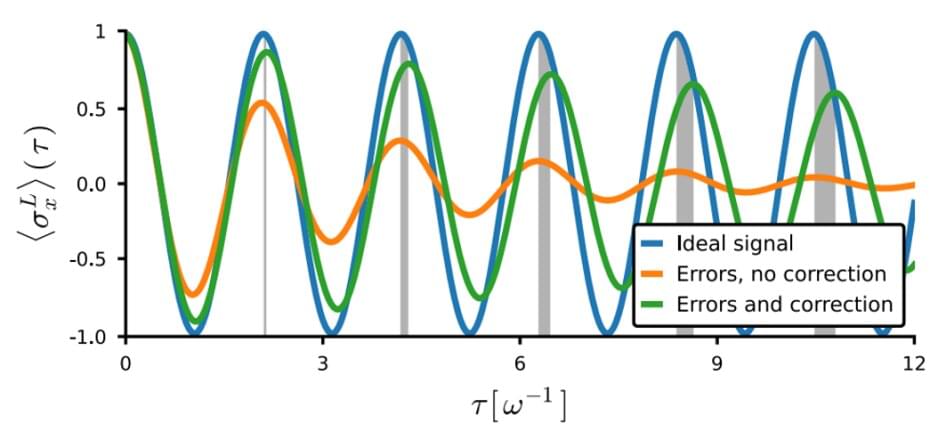It is well established that quantum error correction can improve the performance of quantum sensors. But new theory work cautions that unexpectedly, the approach can also give rise to inaccurate and misleading results—and shows how to rectify these shortcomings.
Quantum systems can interact with one another and with their surroundings in ways that are fundamentally different from those of their classical counterparts. In a quantum sensor, the particularities of these interactions are exploited to obtain characteristic information about the environment of the quantum system—for instance, the strength of a magnetic and electric field in which it is immersed. Crucially, when such a device suitably harnesses the laws of quantum mechanics, then its sensitivity can surpass what is possible, even in principle, with conventional, classical technologies.
Unfortunately, quantum sensors are exquisitely sensitive not only to the physical quantities of interest, but also to noise. One way to suppress these unwanted contributions is to apply schemes collectively known as quantum error correction (QEC). This approach is attracting considerable and increasing attention, as it might enable practical high-precision quantum sensors in a wider range of applications than is possible today. But the benefits of error-corrected quantum sensing come with major potential side effects, as a team led by Florentin Reiter, an Ambizione fellow of the Swiss National Science Foundation working in the group of Jonathan Home at the Institute for Quantum Electronics, has now found. Writing in Physical Review Letters, they report theoretical work in which they show that in realistic settings QEC can distort the output of quantum sensors and might even lead to unphysical results.
